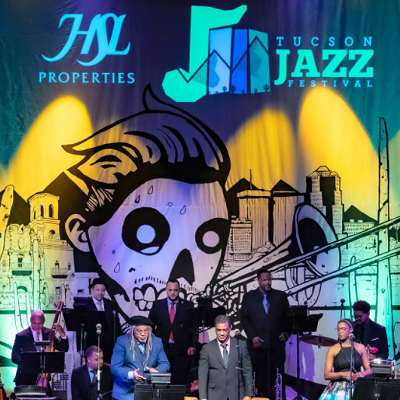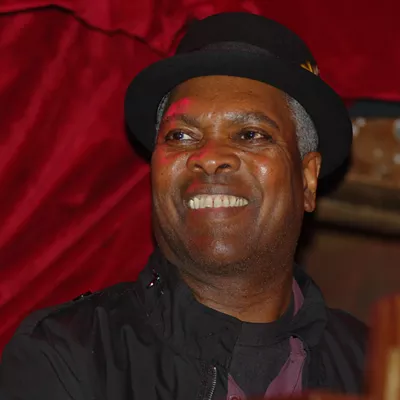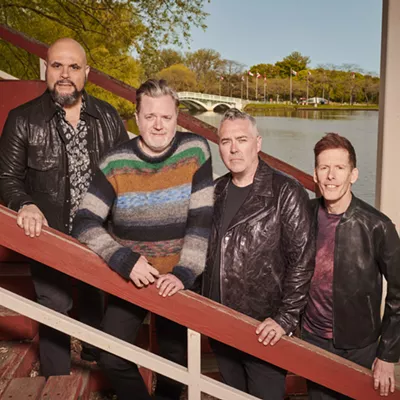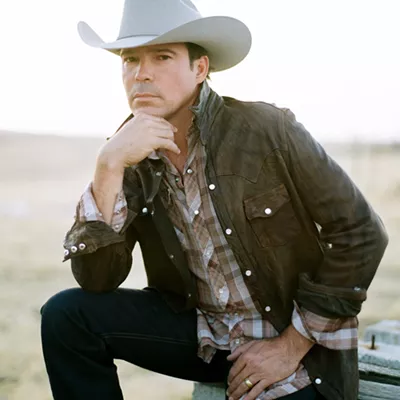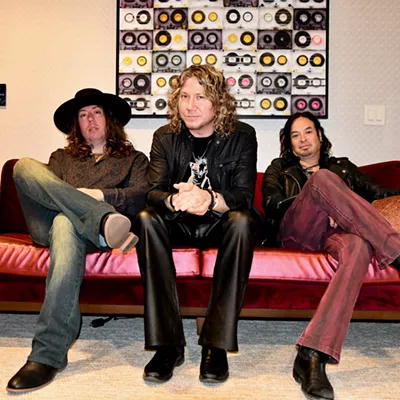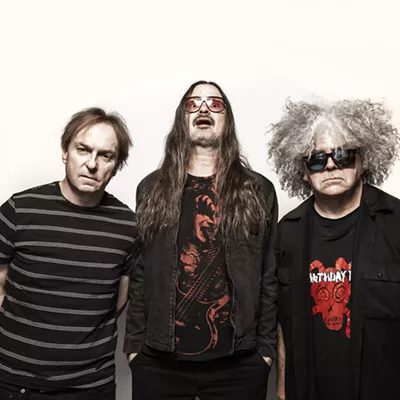To the delight of hard-core jazz buffs, there is new Rollins music in the stores. Even better for Tucsonans, Rollins will perform with his group Friday, Nov. 17, at the UA's Centennial Hall.
Rollins' latest album, Sonny, Please, was issued recently on the saxophonist's own label, Doxy Records. Following last year's release, the live Without a Song: The 9/11 Concert, the new disc consists of his first studio recordings in five years.
After 35 years of recording for Milestone Records, and following the 2004 passing of his wife, manager and co-producer Lucille, Rollins decided it was time to start his own label, naming it for one of his most famous compositions.
Although Sonny, Please is on Doxy, it will be distributed in North America and Europe on Universal, and in Japan on JVC.
Judging from a recent telephone interview, the 76-year-old Rollins is still as spiritually inquisitive and intellectually sharp as ever. Rollins demurred when asked if founding his own label was part of an effort to have more hands-on control of his recordings.
"Not primarily, although that's a residual effect," he says.
"I basically was told that the industry was in a place now where it is just more efficient for guys to own their music and have their own companies and sell you their products over the Web. I took advantage of it. I guess I will also have a little bit more control over my royalty statements."
The new album also will be Rollins' first to be officially released as a digital download, as will all of his recordings in the future. You will be able to buy it online Tuesday, Nov. 21.
Until recently, Rollins claimed ignorance of the Internet and its opportunities for marketing music.
"I have been completely a Luddite until now. I'm not one of those computer-technology guys. I don't shun technology, either. I think it can be used as another effective tool. So whatever way these kids nowadays use to get their music, I want to take advantage of it.
"The guy who runs my Web site told me that a lot of young jazz fans have never even owned a CD. They get their music from downloads."
It's not clear how many of those younger folks constitute Rollins' fan base, though. "I have no idea. If I knew that, it would be probably be beneficial to my business pretensions," he chuckles.
With one exception, the same personnel on Sonny, Please will perform with Rollins at his Tucson date. The band includes trombonist-producer Clifton Anderson, guitarist Bobby Broom, bassist Bob Cranshaw and percussionist Kimati Dinizulu. Filling in for drummer Steve Jordan--who is on the road with Eric Clapton--will be Victor Lewis.
At Centennial Hall, Rollins will play some tunes from the new CD, as well as a few old favorites and a couple of new compositions he recently debuted during gigs in New York and Europe.
"I have a list of about 20 selections, which I carry out on the stage," Rollins says. "Depending on how I feel, I choose from those selections. I always do some Caribbean stuff, which people like and is sort of unique to me."
Rollins intends to start recording in January and expects to have a new studio album out sometime in 2007, maybe some live recordings from the archives, too.
"I have a lot of material from old concerts, a plethora--if I may use that term--of material that I have to listen to from the '70s, '80s and the '90s. But I really want to put out something current now, because I just feel in a particular way that I want to play where I am at right now."
Which is in a place of discovery, he says.
"I'm a player who is always searching, so that unfortunately, you take two steps forward and then take two steps back, and then maybe you might be lucky enough to take another step forward. I'm still in the middle of trying to find my perfection here. I'm not sure if I am playing stronger. There are times when I am physically stronger than some other times. I might have a sore tooth one night. It's too much of a give and take--I have to look at it in the bigger picture. I learn more as I live longer, but putting it together coherently is always a big puzzle.
"Which is part of what makes music so great. It's not a cookbook. You can learn to cook, and you can learn a recipe, but even if you put in the same ingredients every night, it's not that simple. It doesn't come out the same every time."
And what of all those critics and fans who shower Rollins with accolades such as "legend," "icon" or "the last immortal jazz player"?
"It doesn't burden me, because I don't accept it. If I believe that I'm great, that would be the end of me as a player. I don't believe any of it. I still practice my horn every day. It's easy to not buy into my legend."
Even still, as early as in his 20s, Rollins was known as a master improviser, unafraid to take on any melody--in his compositions or those of others--and turn it inside out while retaining its essence and creating a thing of sonic beauty. Take, for instance, the 1957 album Saxophone Colossus--his playing on cuts such as "St. Thomas," "You Don't Know What Love Is" and "Moritat" is filled with the shocking invention and fearlessness that have become part of his trademark style.
Explaining his approach to improvisation, Rollins says, "When I begin soloing, I might rely on some proven lick or something, but once I get into it, it's completely spontaneous. I don't have time to think. Things are happening too fast."
At this point during the interview, Rollins has a mini-revelation. He says. "You can't think and play at the same time. I've really never said it that way, or considered it that way, but that is true."
During improvisation, he says, "The music is going by so fast that my mind is blank, I let the music play me."

